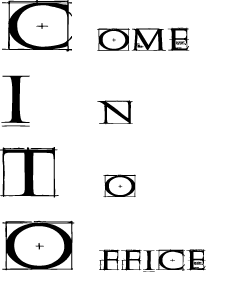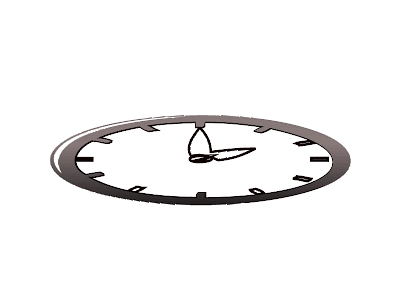

Every person has 24 hours in each day. We all have the same amount of time, however, some people are much more productive than others. How do they do it? Are there any time management "cheats" that can help you accomplish more that you did before?
Of course there are.
1) Make a list.
One of the best ways to get things done, is to know what you want to do. The old Franklin Covey system is what I use. Each night, just before you go to bed, have a notebook and jot down the things that you want to do the next day. Then, while you are sleeping, your subconscious can be thinking of this, instead of dreaming about baseball. In the morning, BEFORE YOU GET OUT OF BED, write down your list, by priority. Then start attacking that list. If you can accomplish most of the items on the list first, then the rest of the day will be easy.
2) What do you do first? Franklin Covey has four categories.
Urgent AND Important
Urgent but not important
Not urgent but important
Not urgent and not important
Use these four categories, and diligently strive to fit each item that you need to do into one of these four categories. Obviously, there will be some items that you might not be able to complete in one day, so do chunks of them on one day, and have the remainder move to following days.
3) Cross them off your list as you complete them. My Aunt Betty used to always celebrate after she had accomplished something on her list. (Maybe it was a drink of water, a treat, or sitting down and taking a break, it didn't have to be big.)
If you reward yourself after you accomplish each task, it will be seen as a positive accomplishment, and you will want to do more. If you don't celebrate, it will be seen as a chore, and you will avoid doing it. Celebrate!
4) CITO: If you have a business where you are making appointment, always strive for CITO, come in to the office. If you have a queue of people that are waiting in your lobby, and you take care of them one after another, that beats going to THEIR home or office and waiting for them. If someone no shows, you can work on your previous clients work while waiting for your next client to arrive. You should always have backup items on your list. If you have a gap in your schedule, work on that list. (Remember #1 and #2? This is where you can work on the urgent but not important, or the important but not urgent. Or even the not important, not urgent items.)
5) Schedule half hour meetings, instead of one hour meetings. If you have a half hour meeting, you will launch into the meeting quickly, and waste a lot less time. If you absolutely have to extend the meeting, you may do so, as long as it doesn't inconvenience anyone else.
Always be respectful of other people's time. (If you schedule half hour meetings by saying, "I have an opening between 3:00 and 3:30, I am then booked the rest of the day. If you want to meet, please be punctual, as I am very interested in your situation, and I want to make sure that we resolve it. If you show up after 3:30, of course I will not be available.)
If your client shows up late, reschedule, do NOT bump someone that showed up on time to see someone that didn't. If they complain that they drove a great distance, explain that you had an opening; they missed it.
You can reschedule, but you shouldn't bump people that showed up on time for someone that didn't. Be polite, but firm. If they are late, they just learned a lesson. If you accomodate them, they will be late again.
Never bend your rules for people that don't obey them. (If you have a gap in your schedule in an hour, explain that you are booked, but you have an opening at 5:30 to 6:00. would they like to reschedule for that time, but you have another appointment at 6, so please be punctual.
6) Establish rapport quickly, and then ask this question, "Can you tell me a little bit about your situation?" I also use, "I don't know if I can help you, but I know how to find out. Do you mind if I ask you a few questions?"
You can also explain the process. "Let me tell you about how we work here. I will ask you a few questions to determine exactly what your situation is. Some of these are going to seem to be personal, but I need this information to help determine how to help you. Is that ok?"
By asking permission before you ask personal questions, and waiting for a positive answer, you will find that most people will be more than happy to answer any question that you have, if you give them a reason for the question first, and ask if it's ok.
7) Use open ended questions and closed ended questions. Open ended questions, such as, "Can you tell me a little bit about your situation" gather large amounts of information. It is free flowing and unstructured.
You must then clarify with a closed ended question, such as, "So you are looking to buy a house and need a mortgage?" By alternating open ended and closed ended questions you can guide the client through an interview quickly and painlessly. By listening, and writing notes, you can use intense listening skills to quickly establish the goal, and arrive at solutions.
8) Always clarify. "So, if I'm understanding you, what you want to do is...." If you know where they want to go, it is much easier to help them get there. If you are misunderstanding them, make sure that you clarify and find out exactly what their needs are, so that you aren't wasting their time.
9) If action is to be taken, make sure that you both agree on an action plan. Delegate who will do which actions, what needs to be done before that action is taken, and the expected results. You have just completed a tentative purchase order, which you can now fulfill. If they need to bring more money, or to pay for the service, spell out their responsibilities at this time, so that you can move forward. DON'T make them guess, tell them what you are proposing, and the cost. If you do this skillfully, they will not feel that they have been sold, but that you have discovered their needs, and you are a valued professional.
10) Make your goodbyes into future appointments. At the end of your session, shake their hand, and schedule an appointment for the next step. At that time, certain things will have been accomplished by both sides.
11) NEXT! After you are finished, walk them out, and greet your next clients. Do not chat for half an hour. They are busy (you have given them a list of the things that they need to do, and you have items that you have to accomplish as well.) Now you can greet your next clients.
If you have time (make sure that you do by structuring the appointment correctly), write down a proposal for how you are going to solve that clients needs, what steps you will need to take, and the timeline to accomplish them, before you greet your next client. If you only have a half hour for each client, allow yourself 5 minutes to accomplish this task. Do this while their meeting is still fresh on your mind, and you know exactly what their problem is. It will be easier now than at any other time.
12) Schedule your decompression time. If you want to just relax, schedule it. If you are married, have scheduled time with your spouse to make her feel loved and cherished. Don't let anyone violate that scheduled time. If you make her feel loved and cherished, you will find that it will be returned. If you make her feel that she is less valuable than a client, she will be upset. Make her feel cherished. If someone calls, allow the call to go to voicemail.
13) Schedule your day in half hour blocks, and keep track of your schedule. I was a mentor with a company, and our day was scheduled in half hour blocks. I followed that schedule religiously, and was able to accomplish more than I ever had before, because I used that tool to help be more productive. Use the tools that you have to be a dynamic and productive time management professional.
14) Be flexible, but use your tools wisely. Situations change, but don't abandon your schedule just because of a change. It should serve you, not be your master.
If you are a rigorous time management expert, and use all of the tools available to you, you will discover that you will have a drastic increase in your productivity, as well as your available time, that you can use as you wish. Don't waste time, you only have a fixed amount, it is up to you how you will use it.